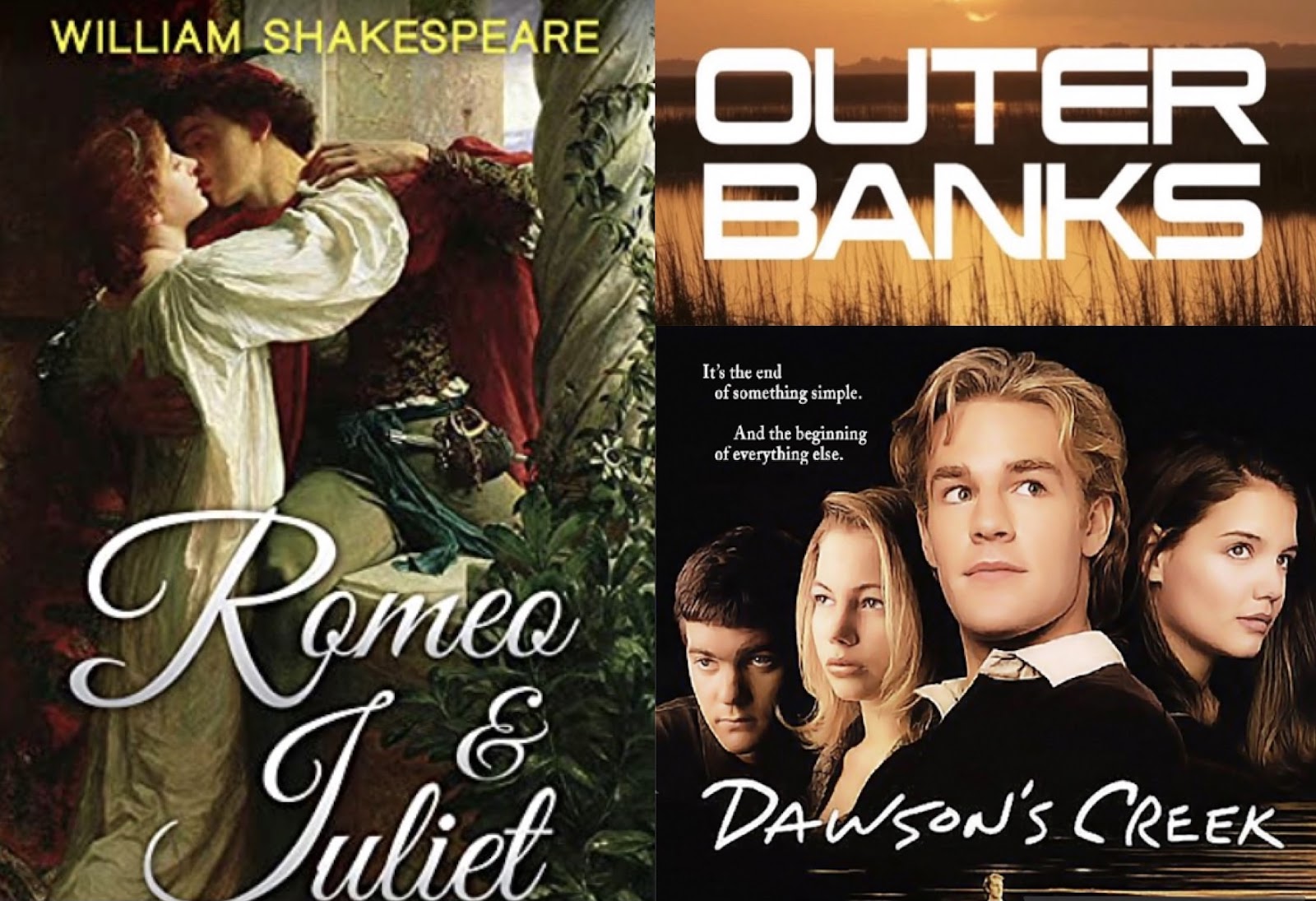In an AP Literature book titled How To Read Literature Like A Professor, the author made a point that I now think about every time I read something new. “Stories grow out of other stories,” he said. Essentially, no story is ever completely unique. There will always be plotlines, character arches, and twists and turns people will recognize if they just pay attention. And as it turns out, this does not just apply to literature.
The Love Triangle
I am an avid watcher of movies and TV shows. Over time I have noticed a certain trend across everything I watch and read. For example, I have just finished watching the 90’s show Dawson’s Creek. There are many common tropes in the six seasons: to begin with, a love triangle that involves the inner conflict between being loyal to a best friend or a love interest. Characters Dawson, Pacy, and Joey have been friends since childhood, but both fall in love with Joey as the show progresses. This causes a huge rift in their friendship, and by the end of the last season they are only just starting to truly rebuild their relationship.
Outer Banks is a modern version of Dawson’s Creek. While these two shows are still very different, the love triangle is back once again. JJ, Kiara, Pope have a budding conflict as the boys seem to be vying for Kiara’s attention. However, this is causing tension between the two boys in particular, and the friend group as a whole.
As How To Read Literature Like A Professor explained, these stories often stem from Shakespearean times. In Romeo and Juliet, Romeo chooses to follow his passion for Juliet instead of listening to his best friend Mercutio. While this is not a “love triangle,” the drama between Romeo and Juliet eventually leads to Mercutio’s death. We see that the main romance leads to all sorts of hardships for those around them — a theme everyone has heard of.
The Parent/Child Conflict
Another relationship common between the three — not to mention appearing in many other tales — is the complicated relationship between characters and their parents. Will they obey their parents or strike out on their own with their friends/significant other? Can they overcome the struggles they face within their family? In Dawson’s Creek and Outer Banks most characters seem to have a dysfunctional relationship with their parents in one way or another, and Romeo and Juliet is all about people disobeying their families. There is a constant debate about where the character’s loyalties will lie.
The Trend Will Continue
So why do we find hearing these same things over and over so appealing?
My short answer would be because it helps people relax. In a world where so much is stressful and uncertain, reading and watching television is often used as an escape from daily life — when people know what to expect they can relax and focus on enjoying themselves.
“I like watching and reading those things because it helps with my understanding of the content and I think I enjoy the stuff I’m already familiar with,” said Olivia Corbett, a senior at LRHS. “People love to recognize patterns and make connections. Plus, the main villain everyone dislikes or having the hero with a big secret is engaging and gives people something they can discuss or argue about with others.”
Another factor is that as a society, we tend to glorify drama, as drama brings excitement — even if it is the bad kind. How many stories are there where one of the parents is not dead or abusive? Or there are not tensions between friends as they start to fall for one another? What tale does not incorporate a tragic event that leaves others scarred and changed forever? Without these classic, dramatic turns of events, things would be much less interesting.
There is nothing particularly harmful about this reality: we should recognize them as such. Next time you sit down to read a book or start a new movie, make sure to be on the lookout for these parallels.

Hi! My name is Gretchen and I am a senior editor and SEO editor for The Mycenaean. I love to travel and listen to music.

Leave a Reply